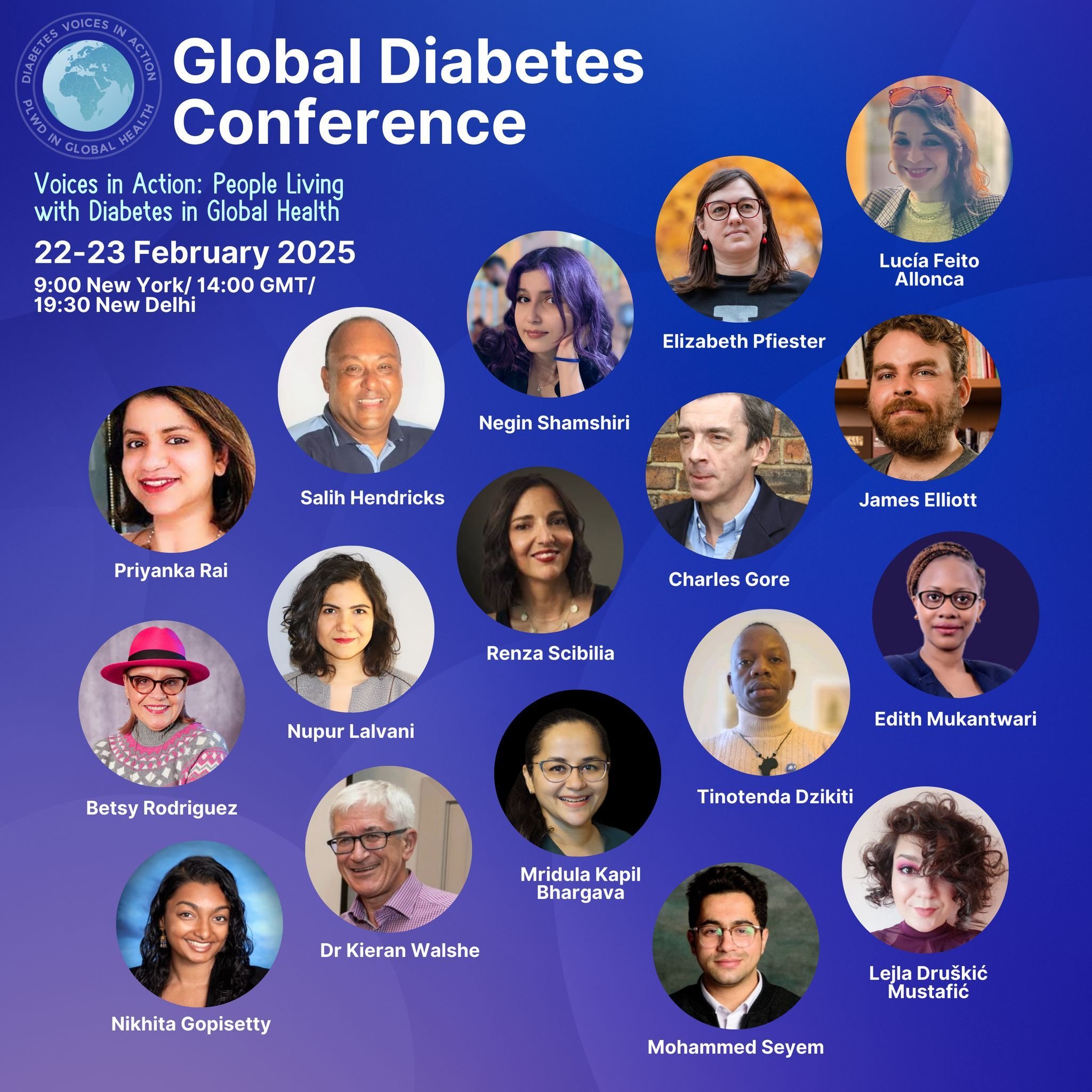Rethinking Our Reach: Advocacy, Community, and the Voices Unheard
If I had to chose just one word to describe the last two mornings (starting at 6am) it would be empowering. Yet, that single word is probably not enough. This was one of those spaces where you get to see many friendly (familiar actually) faces gathered in the same virtual feeling empowered and welcomed by a supportive community.
The Power Dynamics in Diabetes Advocacy
One of the most urgent conversations centered the pressing need for access to insulin and it was part of each conversation and breakout room. Some of the communities most affected by these issues remain not only underrepresented, but completely overlooked.
Maybe this is a personal rant, though I know I’m not alone, but Latin America is hardly ever considered. Time and time again, we see that despite facing huge challenges, some of our Latinamerican countries are left out of the conversation. Representation shouldn’t be selective. Not in the diabetes community.
The reality is that many make assumptions about access and means, leading to an unrealistic understanding of the global diabetes experience, including the lived experience in my beloved region.
It is undeniable that government and pharmaceutical companies hold most of the power, deciding what gets prioritized and who gets heard. As one of the speakers mentioned, “transparency is key to achieving our collective goals” and by collective perhaps we should include them as well in our conversations.
Without honesty and open conversations, real change is practically impossible. It's also important to recognize the significant role that some of these organizations and key stakeholders play in various countries and educational initiatives. Their influence also helps shape programs and resources that impact communities. In Mexico, some of us would not be here without these initiatives sponsored by the big pharma players.
Co-Creation and Representation
This virtual conference brought deep reflections on what it means to co-create and to be truly inclusive in the diabetes community. As one of the participants stated, it’s about "not just being a narrative, but truly co-creating the narrative."
We talked, again, about how often we get invited to events where our medical conditions and lives are being discussed, but how rarely we’re given the same recognition as medical professionals in those conversations.
We’re usually encouraged to participate and share our experiences, for free, but we are rarely invited to lead the discussions. It’s even less common that we have a real seat at the table where decisions are made. Being included isn’t the same as being heard, and it’s definitely not the same as having real influence.
We discussed how we can support new advocates in joining the community and sharing opportunities with them. We realized that there's a lack of joint efforts even when we all have the same goal in mind.
Voices in Action: People with Diabetes in Global Health
Advocacy, Emotional Burden and Burnout
The road, as we all agreed is sometimes exhausting. Burnout is real, emotional burden has an impact in the community and the work that we do.
As advocates, we often experience high levels of stress due to the constant need to educate, fight misinformation, and navigate systemic barriers, often with limited resources at the same time that we want to prioritize our own health and diabetes care.
The emotional toll of witnessing the struggles of those less privileged and impacted by diabetes, combined with the pressure to create meaningful change, can lead to feelings of frustration. Am I doing enough?
From ‘I’ to ‘We’
Yes, we talked about all these topics… again. But perhaps one of our mistakes is that we keep having these conversations among ourselves, without truly reaching those who are unable to join virtually or who are not part of this privileged diabetes online community to which I belong.
As one of the speakers wisely pointed out, “We have to also extend our reach beyond social media to include the voices of those who cannot be in the room.” This reminder keeps me thinking about how we can make diabetes advocacy more inclusive and reach more people. It's a push to find ways to bring more voices into the conversation.
We were reminded of how often and loud we say, "Nothing about us without us," and yet, we must keep repeating it until it truly becomes a reality. This should be more than just a phrase, it should be a movement. Perhaps it should be a principle that ensures decisions about us are made with us, not just with us as tokens, but as active decision-makers with real influence. Am I dreaming out loud?
Representation without power is, if you ask me, meaningless, and inclusion without agency is nothing but performative. It’s frustrating to see how difficult it is for some to realize, but until it is fully understood and implemented, we will keep saying it, again and again, until change happens.
This conference was more than just an event; it was a call to action, a reminder that true progress comes from co-creation, representation, and the courage to demand change TOGETHER. Let's make that happen.


